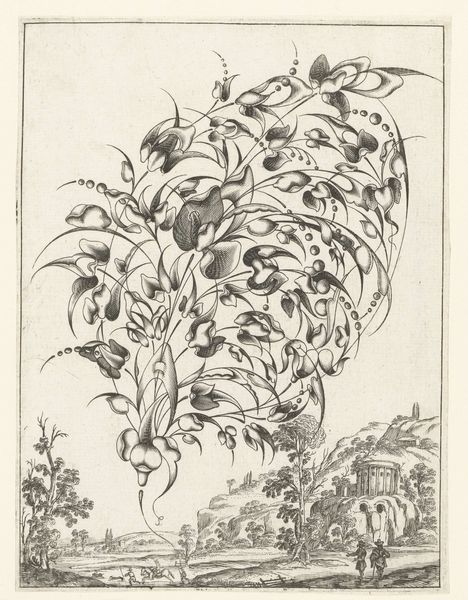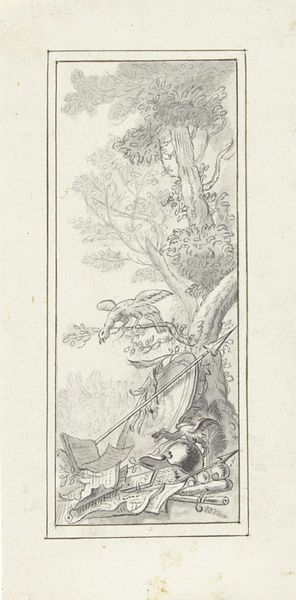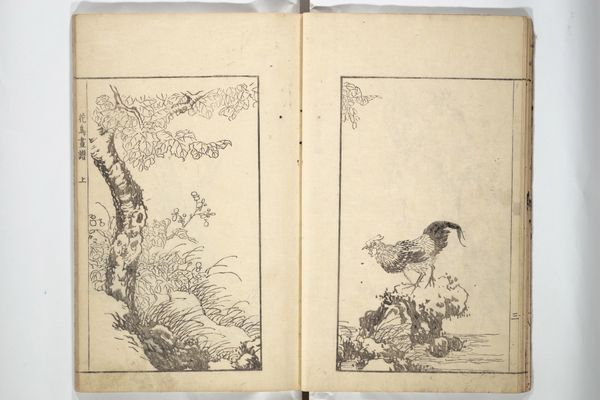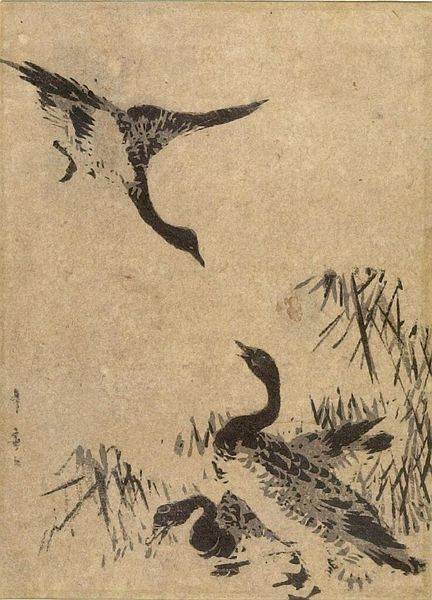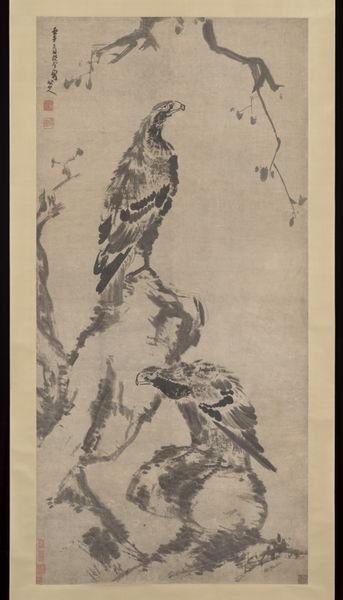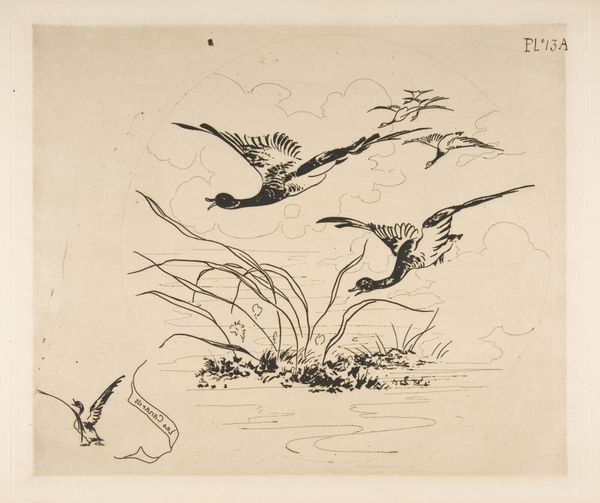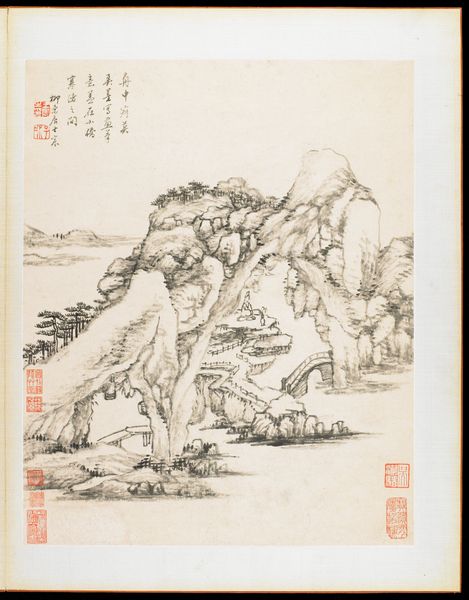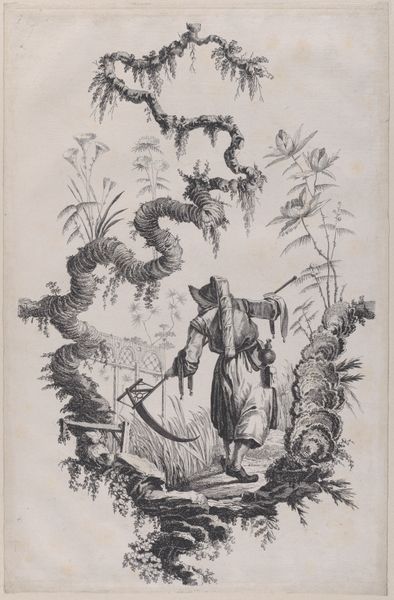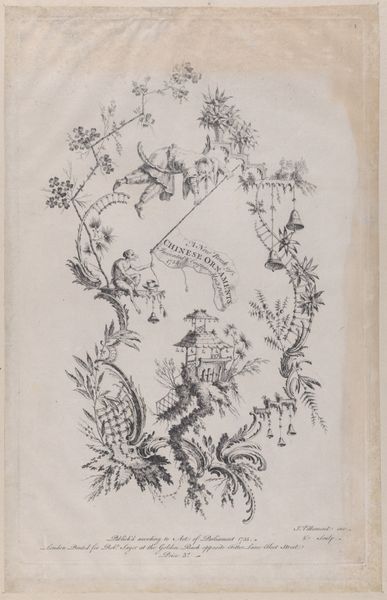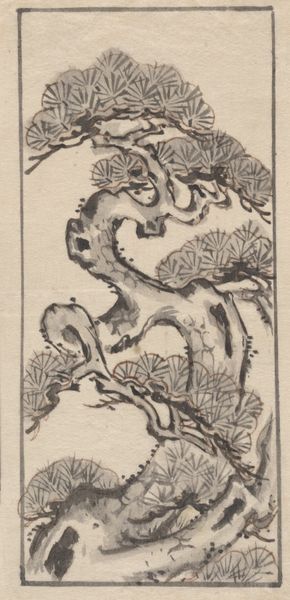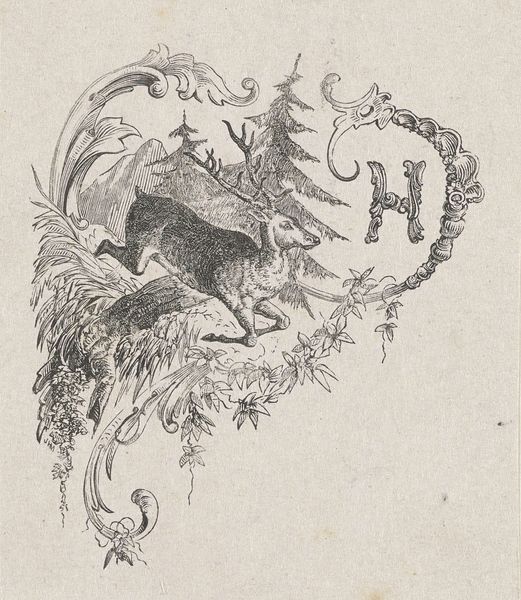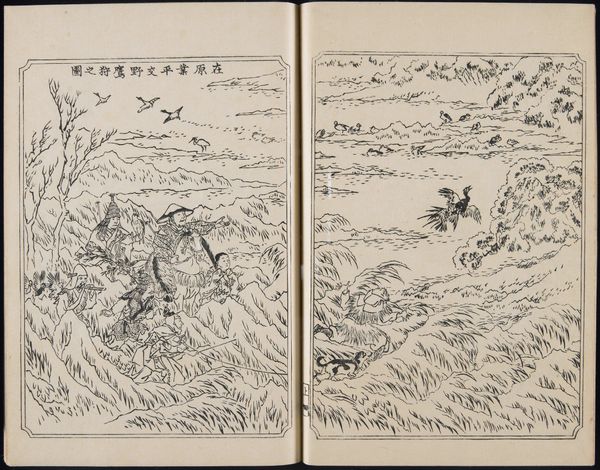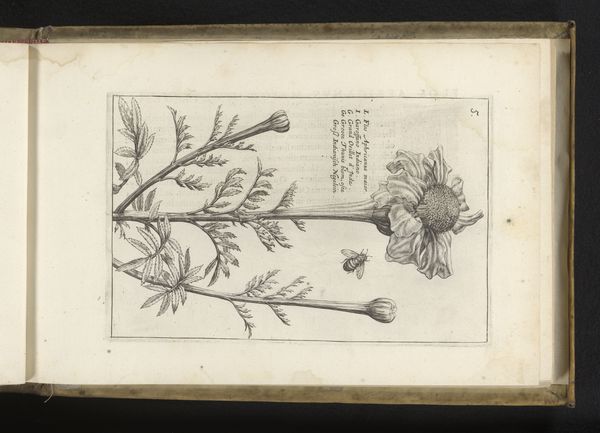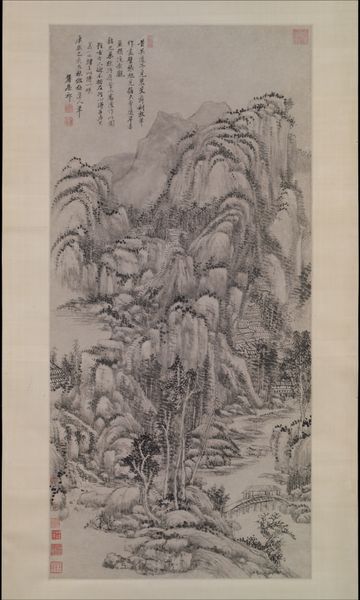
drawing, print, paper, ink, pen
#
drawing
#
ink drawing
#
pen drawing
#
animal
# print
#
asian-art
#
landscape
#
bird
#
ukiyo-e
#
paper
#
ink
#
pen
Copyright: Public domain
Editor: We're looking at "Manga" by Katsushika Hokusai, currently housed at the Guimet Museum in Paris. It’s an ink drawing, seemingly a page of studies. I’m struck by how dynamic and free it feels, especially considering the discipline often associated with traditional art. What makes this piece particularly interesting from your perspective? Curator: What immediately captures my attention is the socio-political context. The term "manga" itself initially referred to a style, rather than just meaning "comics," and Hokusai was incredibly influential in its development. We need to remember that ukiyo-e prints like these weren’t always considered ‘high art’. In their own time they served a wider audience – more popular, commercially viable purposes. The question, then, is how did a collection like this - almost sketches in nature - find its way into a museum? Editor: That’s a good point. So, its accessibility during Hokusai’s time might have shaped its style and content more than any pursuit of “high art”? Curator: Exactly. Consider how museums, often built on colonial structures, historically favored certain artistic styles. How does a piece like this, initially made for mass consumption, get elevated to the status of museum art? And what does it mean for our understanding of Japanese printmaking more broadly? Think about how cultural institutions validated certain art forms while potentially overlooking others. Editor: It makes me think about how we define "art" and who gets to make that definition. Thanks to you, now I will examine it through the lens of cultural shifts and how institutions validate art. Curator: Precisely! Recognizing this opens up fascinating discussions about power, representation, and the evolving role of art in society.
Comments
No comments
Be the first to comment and join the conversation on the ultimate creative platform.
